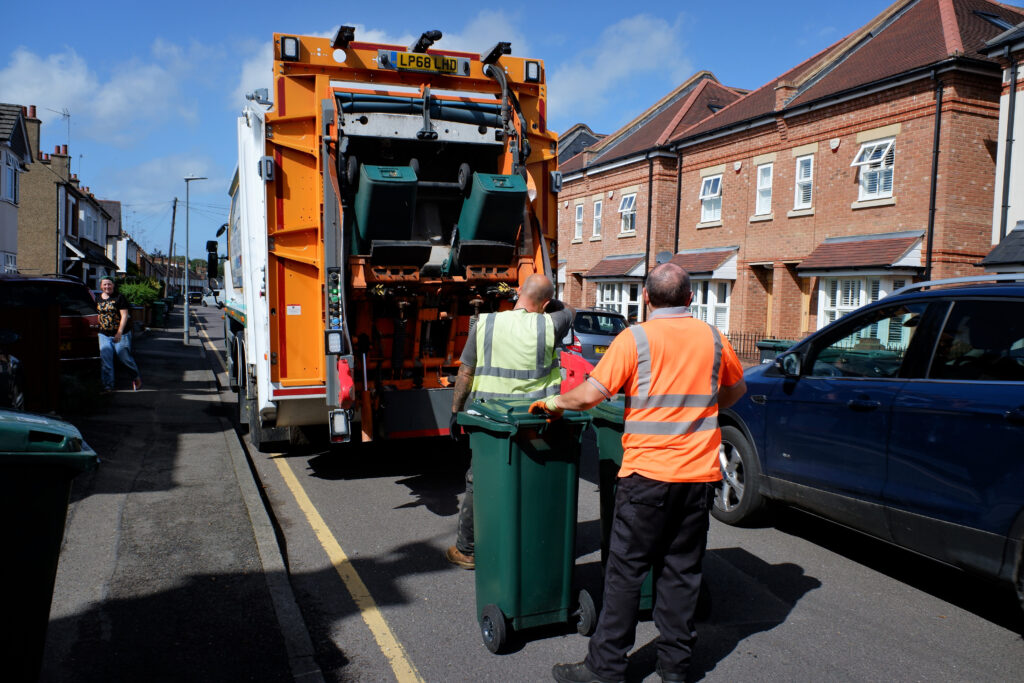Government plans for a Green Investment Bank need to include funding for waste and recycling infrastructure as a priority, campaign groups and councils bodies have claimed.
Speaking yesterday (July 14) in central London, representatives of the Institution of Civil Engineers (ICE), the Local Government Association (LGA) and Friends of the Earth outlined their priorities for the coalition government in the waste sector, with a viable funding mechanism emerging as a pressing concern for all three.
We do need to motivate investment in infrastructure. I agree that the government's plans for a Green Investment Bank should be the potential source for this
Martin Wheatley, programme director for environment and planning, LGA
At the event, which was hosted by the Associate Parliamentary Sustainable Resource Group (APSRG), attendees also addressed the current state of waste treatment capacity in the UK and whether the coalition government should continue focus its efforts on household waste as the previous government was accused of doing.
During discussions, the Green Investment Bank (GIB), which is set to be developed to support clean energy and green technologies, emerged as one of the main areas where waste infrastructure funding could potentially be drawn.
The implications the GIB could have for waste infrastructure development are currently unclear, as Chancellor George Osborne announced in his emergency budget last month that detailed plans for the GIB would be brought forward after the autumn spending review (see letsrecycle.com story (see letsrecycle.com story).
However, a report published by the government-backed Green Investment Bank Commission did not identify waste infrastructure as a priority (see letsrecycle.com story).
Speaking at the APSRG event, Martin Wheatley, programme director for environment and planning at the LGA, said: “We do need to motivate investment in infrastructure. I agree that the government's plans for a Green Investment Bank should be the potential source for this.”
Mr Wheatley added that the LGA, which would be working with the government during its review of waste policy, was keen to see an “effective driver” for financial investment in the waste and recycling sector.
Infrastructure
We need to remember that sustainable infrastructure is a good investment and it offers a strong rate of return
Professor Paul Jowitt, Institution of Civil Engineers
Mr Wheatley's view was echoed by Professor Paul Jowitt, president of the ICE, who explained that financing “has become more difficult” to secure from both central government and also from the private sector in the wake of the recession.
He said: “We need to remember that sustainable infrastructure is a good investment and it offers a strong rate of return, so there may be some opportunity there with the Green Investment Bank.”
And, Professor Jowitt also explained that finance for the sector would hopefully be driven by the government's planning body InfrastructureUK, which was confirmed in the coalition's first budget, as well as a National Infrastructure Plan, which is due to be published later this year.
Outlining the need for funding, Professor Jowitt highlighted the fact that the ICE's ‘State of the Nation' report, which was published in June to assess infrastructure developments across a range of sectors, had been highly critical of waste and recycling infrastructure.
“The verdict on waste was not good,” he said. “Significant investment is required to meet the needs over the next five years and beyond that.”
Time
Also speaking at the event, Michael Warhurst, senior waste campaigner for Friends of the Earth, said that the government should not just implement a new funding model but assess the merits of long-term waste contracts, such as those that exist under the current Private Finance Initiative (PFI).
He said: “In our view PFI contracts should be terminated as they are for 25 to 30 years. Contracts should be much shorter, between five and 10 years, and if the government has some way to help that then that would be great.”
Mr Warhurst explained that shorter contracts would allow changes in population and waste composition to be taken into account and, to give context to future contract arrangements, he pointed to the advances achieved in waste and recycling technologies over the previous 30 years.








Subscribe for free